Postpartum low-dose esketamine aids moms with prenatal depression
Powered by WPeMatico
Powered by WPeMatico
Powered by WPeMatico

West Bengal- All India Institute of Medical Sciences (AIIMS), Kalyani is going to conduct interviews for the Externship Program in various departments of AIIMS, Kalyani, West Bengal for the July-December session, 2024. On this, AIIMS, Kalyani has issued a notice detailing the application process, fee, mode of selection, etc.
The Observership or short term training of external students are termed as externship
HOW TO APPLY
Interested candidates will have to fill out the Google form and also attach the necessary documents with it, the link to the Google form is given in the notice. Candidates are advised to fill up each & every column of the application form & read the instructions/ guidelines carefully before filling up the form. Incomplete applications will be rejected straightaway. The application form is available till 30th April 2024 till 05:00 PM. No hard copy of the application would be accepted.
FEE
Only selected student has to deposit the stipulated course fee of Rs.1000/month to the Academic Section through Demand Draft only as per the prescribed norms before starting the externship. The same will be deposited by the academic section to the Accounts section following the direction of the competent authority.
MODE OF SELECTION
Following the shortlisting/verification of applications received the eligible candidates will be called for an interview. The selection of the candidates will be based on their performance in the interview only.
The interview for the Externship Program will be held at the Administrative Building, Ground Floor, Welcome Centre, AIIMS, Kalyani, West Bengal. However, the date and time will be notified on the AIIMS Kalyani official website soon.
IMPORTANT POINTS
1 Any student pursuing graduate/ PG courses of any particular institute of state government or central government or NAAC accredited reputed private institute will be eligible to apply for this externship program for a minimum of one month and a maximum of six months.
2 Candidates have to submit their applications along with the Authorisation letter while addressing the Executive Director of AIIMS, Kalyani from the institute authority where the student is actively pursuing the course. Students who have passed out or appearing for the examination are not allowed.
3 In any case neither the present institute of the student nor the candidate can write directly to any department concerned where the candidate is interested in undergoing an externship.
4 Eligibility of a candidate for externship does not automatically entitle them for selection.
5 Applicants who have previously received training/externship at AIIMS, Kalyani may not be considered for again.
6 On successful completion of the training period, candidates will be issued a certificate of attendance and course completion by the academic section after due approval from the competent authority. Certificate of Attendance will be issued for fulfilling the requirements of the course pursued by the student. Any department of AIIMS Kalyani will not issue any certificate to this effect
7 The Institute does not provide any hostel accommodation for the externship program.
To view the notice, click the link below
Powered by WPeMatico
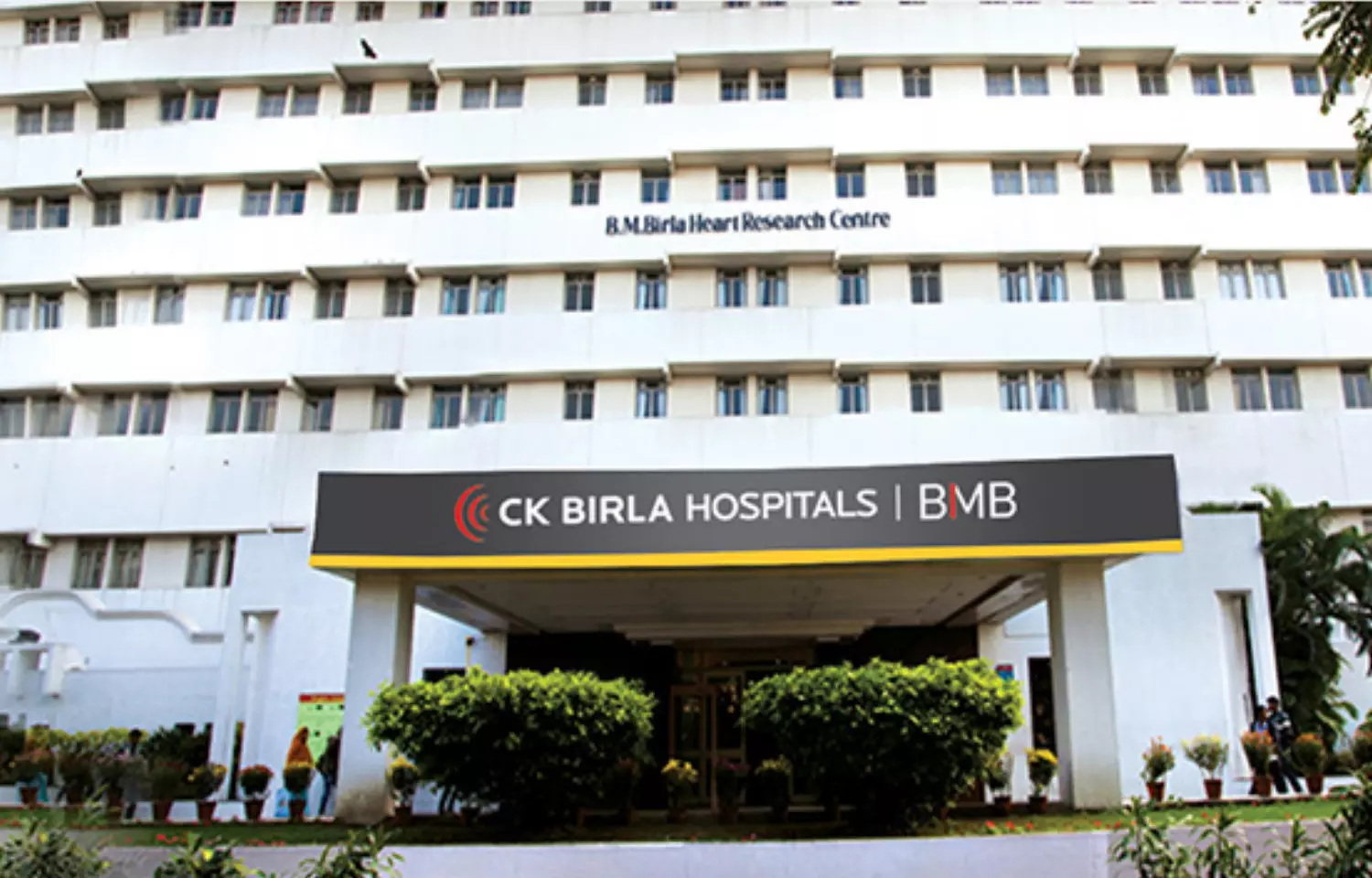
New Delhi: In a landmark medical advancement, CK Birla Hospital®, Delhi has successfully treated two women suffering from complex and advanced breast cancer with the help of robotic-assisted breast preservation surgery. This is one of the first in India case where this unique technique has been used to preserve full breasts and nipple sensation. The team of doctors led by Dr. Mandeep Singh Malhotra, Director of Surgical Oncology at CK Birla Hospital®, Delhi performed robot-assisted functional breast preservation surgery (RAFBPS), which is a minimally invasive surgical technique performed using Da-Vinci Robot.
A 27-year-old woman was presented at the hospital with a breast lump, a few months after her baby was born. Due to her denial and masking of symptoms associated with changes in the breast during pregnancy and lactation, the cancer progressed to an advanced stage. The woman was administered with Neo Adjuvant Chemotherapy, which allows for optimal removal of residual tumor, along with targeted medicine and she responded exceptionally well to this systemic treatment. The patient underwent RAFBPS without complications and experienced a swift recovery. Despite her initial fear of losing her breasts, RAFBPS not only preserved her breasts, but also provided her with functional, sensate, and similar breasts like her original ones.
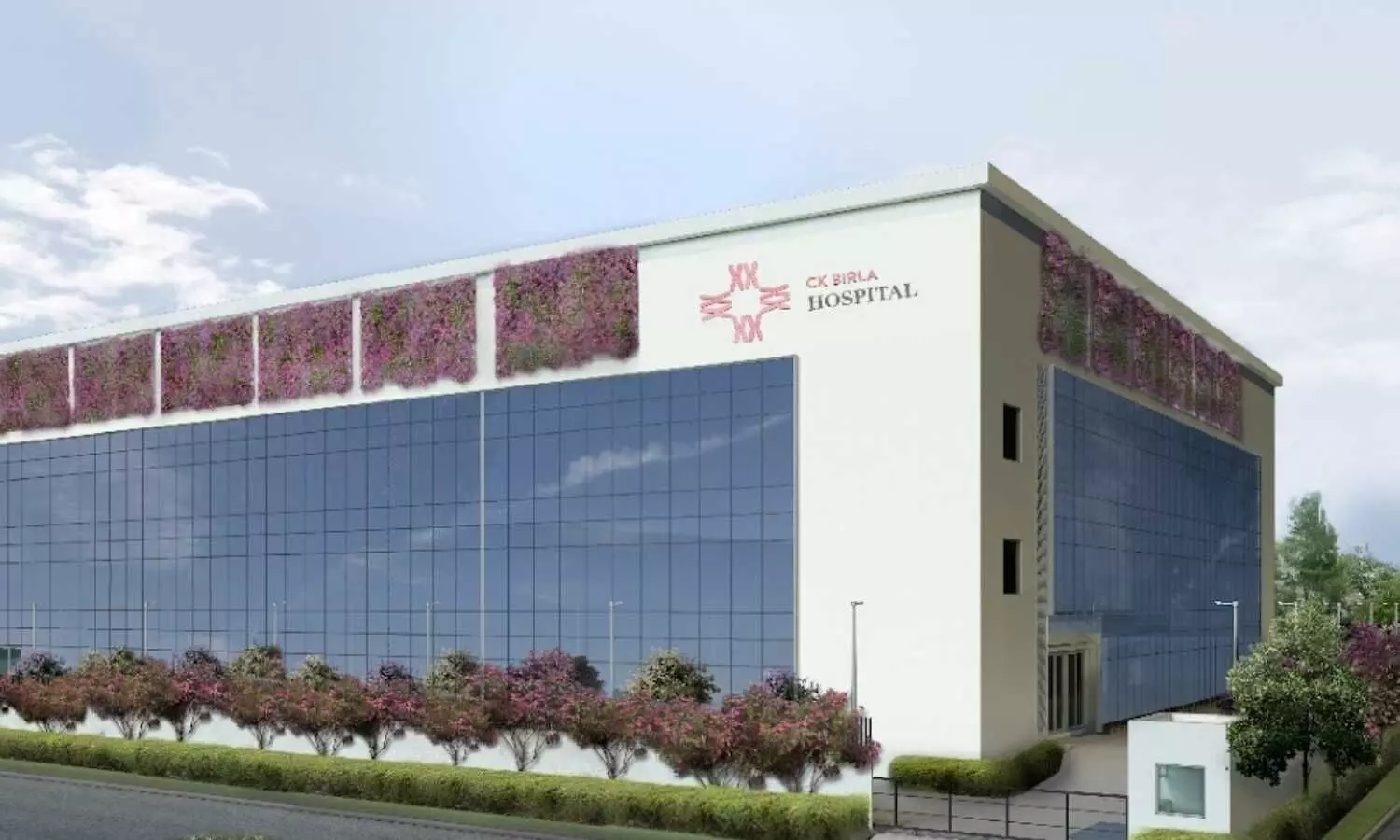 Also Read:Rare case of Half Uterus: Doctors at CK Birla Hospital successfully treats 27-year-old woman
Also Read:Rare case of Half Uterus: Doctors at CK Birla Hospital successfully treats 27-year-old woman
In another case, a woman in her late 50s was diagnosed with early-stage of breast cancer but the cancer was multifocal i.e. she had 3 breast lumps. The patient was in a lot of distress due to the expected loss of breasts and the morbidity it would cause. Identified as a candidate for immediate surgical intervention, she underwent RAFBPS. This surgical procedure utilized robotic arms to remove the cancerous tissue and simultaneously harvesting tissue from the back to reconstruct the breast; with a single lateral mammary incision. Following the successful surgery, the woman recovered well and now enjoys a healthy and fulfilling life.
Dr Mandeep Singh Malhotra, Director of Surgical Oncology at CK Birla Hospital®, Delhi, said, “One of the first in India, where Robot-assisted functional breast preservation surgery with Latissimus flap reconstruction has been conducted at our hospital. This surgery offers more precise visualization and smaller incisions. In these types of surgeries, robot is used to enter the breast from the armpit to remove tissue and reconstruct the breast, preserving the breast skin as well as nipple, if possible, thus preserving the breast sensation. This procedure provides remarkably natural looking outcomes while preserving full breast sensation. By retaining the original breast skin and nipple, the breast sensation remains intact, hence the breast looks as well as feels like the original breast and the robot makes this surgery simpler with better aesthetics. Loss of breast is morbid for women of any age and should be equally evaluated for the option of breast preservation. This procedure is recommended for women having early-stage breast cancer without involvement of overlying skin/nipple and those women who have responded very well to Neo Adjuvant Chemotherapy/ Systemic Therapy.”
Breast cancer is now the most common cancer affecting women in India. It constitutes 14% of female cancers, posing a significant challenge. For every two women diagnosed, one sadly succumbs to the disease. In 2020, 178,361 new cases were reported, with urban women facing a higher risk (1 in 22) than rural women (1 in 60). While cancer-specific mortality (death rate) of ovarian cancer is more than breast cancer, the overall mortality of breast cancer is higher.
 Also Read:4.5 kg tumour removed from patient’s breast at CK Birla Hospital
Also Read:4.5 kg tumour removed from patient’s breast at CK Birla Hospital
Powered by WPeMatico
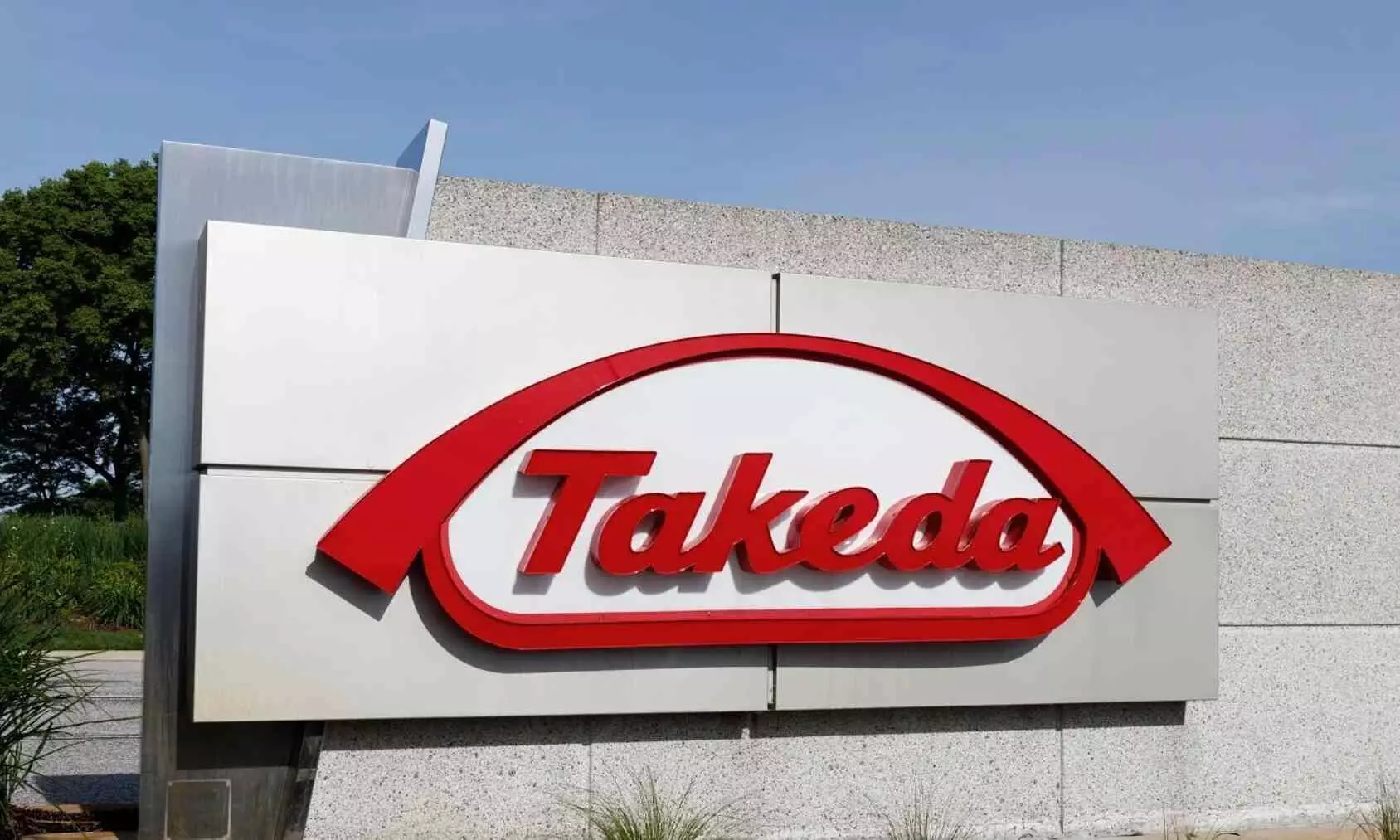
Osaka: Takeda has announced that the U.S. Food and Drug Administration (FDA) has approved ENTYVIO (vedolizumab) subcutaneous (SC) administration for maintenance therapy in adults with moderately to severely active Crohn’s disease (CD) after induction therapy with intravenous (IV) ENTYVIO. The subcutaneous administration of ENTYVIO was also approved by FDA in September 2023 for the maintenance treatment of adults with moderately to severely active ulcerative colitis (UC) and is available in the U.S. as a single-dose prefilled pen (ENTYVIO Pen).
The approval is based on the VISIBLE 2 Study (SC CD Trial), a Phase 3, randomized, double-blind, placebo-controlled trial, which assessed the safety and efficacy of an SC formulation of ENTYVIO as maintenance therapy in adult patients with moderately to severely active CD who had clinical response** at Week 6 following two doses of open-label vedolizumab intravenous therapy at Weeks 0 and 2. The primary endpoint was clinical remission*** at Week 52, which was defined as a total Crohn’s Disease Activity Index (CDAI) score of ≤150.
“Crohn’s disease is a complex and usually progressive disease for which an appropriate management plan is critical. My primary goal as a clinician is always to get patients to achieve remission. In VISIBLE 2, about half of patients treated with ENTYVIO SC achieved long-term clinical remission,” said Timothy Ritter, MD, senior medical director, Department of Research and Education, GI Alliance Research and assistant professor of medicine, TCU School of Medicine. “The data from VISIBLE 2 reaffirm the well-established efficacy profile of ENTYVIO, regardless of route of administration.”
In VISIBLE 2, a total of 409 patients were randomized at Week 6 in a double-blind fashion (2:1) to ENTYVIO 108 mg administered by SC injection or placebo every 2 weeks. Eligible patients included patients who had experienced an inadequate response to, loss of response to, or intolerance to at least one of the following: corticosteroids, immunomodulators (azathioprine, 6-mercaptopurine, or methotrexate), or tumor necrosis factor (TNF) blockers (including primary non-responders).
A statistically significant proportion of patients receiving ENTYVIO SC 108 mg maintenance therapy administered every 2 weeks achieved long-term clinical remission*** compared to patients receiving placebo (48% vs. 34%; p<0.01) at Week 52. In clinical studies, the ENTYVIO SC safety profile was generally consistent with the known safety profile of ENTYVIO IV, with the addition of injection site reactions (including injection site erythema, rash, pruritus, swelling, bruising, hematoma, pain, urticaria and edema) as an adverse reaction for ENTYVIO SC.
“The approval of subcutaneous ENTYVIO in Crohn’s disease delivers on our goal of providing treatment options that can help patients achieve remission of their ulcerative colitis or Crohn’s disease, while also providing them flexibility and choice of route of administration. With ENTYVIO Pen, patients have the option of administering their maintenance treatment at home or on the go,” said Brandon Monk, senior vice president, head, U.S. Gastroenterology Business Unit, Takeda. “Our development of a subcutaneous option demonstrates Takeda’s commitment to meeting the very real needs of those living with gastrointestinal diseases.”
Takeda does not expect a material impact on the consolidated financial statements as a result of this approval.
Powered by WPeMatico
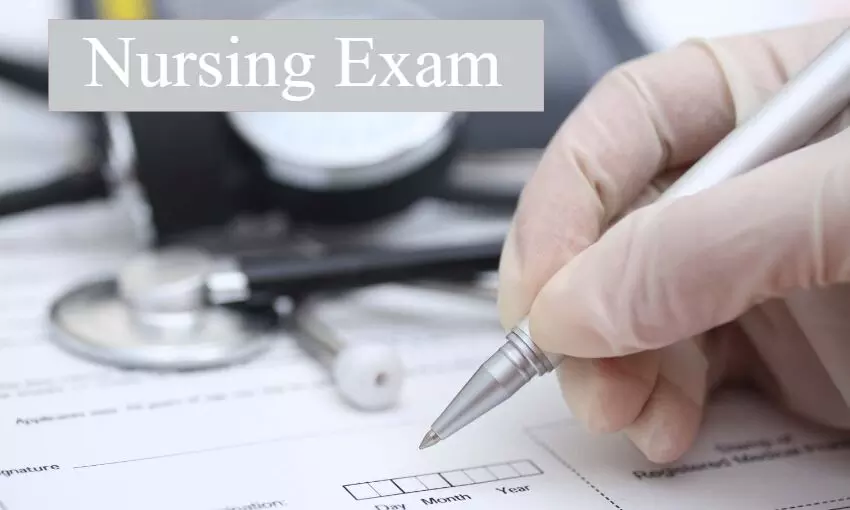
Puducherry- The CENTAC has recently issued a notice on its website regarding the conduct of a common entrance test for admission to the BSc Nursing course in the UT of Puducherry.
In its notice, the CENTAC notified about the government order referring to the Indian Nursing Council notification.
“The Indian Nursing Council has intimated that the admission to B Sc. (Nursing) from the academic year 2024-25 shall be made through the Common Entrance Examination by the State Government Common Entrance Cell / Universities in compliance with the Indian Nursing Council (Revised Regulations and Curriculum for B.Sc. (Nursing) Programme), Regulations, 2020”, the official notice stated.
It further stated that the Entire Entrance Examination process should be done by the Board of Examination of Nurses, Puducherry under the directions of the Indian Nursing Council from time to time.
Further, the Deemed Universities in the Union Territory of Puducherry have also been directed to conduct the said entrance examination at their level as per the instructions of the Indian Nursing Council, New Delhi.
Meanwhile, other terms and conditions for admission, scheme of examination etc. will be notified separately and the schedule of the Common Entrance Examination will be notified with the concurrence of the EC1 on account of the Model Code of Conduct being in force.
Indian Nursing Council is a statutory body under the Ministry of Health & Family Welfare, Government of India, New Delhi. It was constituted by the Central Government under Section 3(1) of the Indian Nursing Council Act, 1947 of Parliament to establish a uniform standard of training for nurses, midwives and health visitors.
To view the notice, click the link below
Powered by WPeMatico
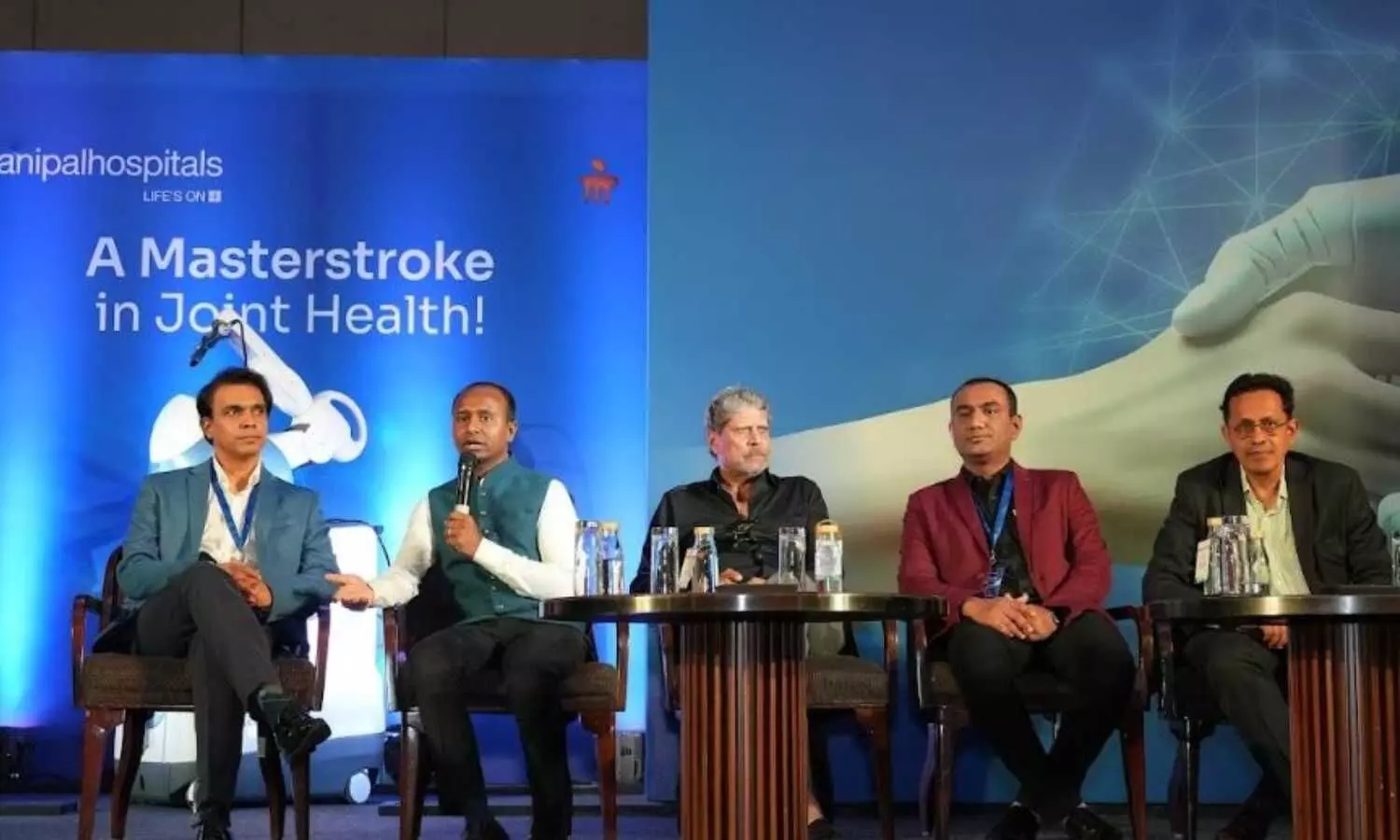
Pune: Manipal Hospital, Kharadi welcomes the legendary Indian cricket team captain, fitness enthusiast and recipient of Padma Bhushan Shri Kapil Dev to introduce a cutting-edge robotic technology for advanced orthopedic surgeries. This technology aims to improve knee replacement and joint treatment with robotic-assisted surgeries in Pune and nearby cities.
Over the last five years, there has been a significant increase in the number of joint replacement surgeries in India. Surgeons across the country have witnessed more than 2.5 lakh patients undergo knee replacement surgeries every year, and the number has increased manifold in recent years.
Since few years, Manipal Hospital Kharadi has observed an increase in knee replacement surgeries. With newer and more advanced technology in India, people with total knee replacement can start to walk as early as six hours after the surgery. The evolution in orthopedic treatment and the introduction of robotic-assisted orthopedic surgeries have minimized the risks associated with knee replacement.
Robotic-assisted surgeries are advanced medical procedures performed using robotic devices guided by a surgeon. These procedures help surgeons perform complex surgeries with precision instruments and advanced systems, less bleeding reduced recovery time.
Unveiling the advanced robotic technology, veteran Indian cricketer Mr Kapil Dev said, “I would like to congratulate Manipal Hospital Kharadi for introducing the new and advanced robotic technology for joint replacement. In cricket, we constantly strive to improve our equipment’s and techniques for better performance. Similarly, the advancement in healthcare, one of which is robotic-assisted surgery, has improved the treatment option for people suffering with orthopedic problems.
As a sportsman, I understand the impact of joint injuries and the importance of faster recovery and this new robotic technology at Manipal Hospital is a game-changer in orthopedic treatment options available in the city. It offers faster recovery, less pain, and a quicker return to an active lifestyle.”
Emphasizing the need of robotic surgery, Dr Sinukumar Bhaskaran, Adult Joint Replacement & Reconstruction and Robotic Arthroplasty (Hip & Knee), Manipal Hospital, Kharadi, Pune said, “Our focus is on improving patient outcomes, and this robotic technology is a step towards offering quality orthopedic treatment. Robotic-assisted surgery is not only beneficial for the doctors performing complex surgeries but also for the patient by offering faster recoveries and reduced pain improving the quality-of-life post-surgery.
The new system allows personalized 3D CT scans, delivering sub-millimeter accuracy and enhanced safety with real-time bone movement monitoring for more precise implant surgery and reduced risk of infection. With a success rate of 98%, this meticulous precision results in longer-lasting joint replacements, reducing the need for costly and invasive revision surgeries. Using this technology and our unique clinical pathways, our hospital can offer patients fast-track knee surgery where the patients can go home within 24 hours.
Speaking on the event Parmeswar Das, Director, Manipal Hospital, Kharadi said, “Clinical Excellence and patient centricity is at the heart of all we do at Manipal Hospital, Kharadi. We are committed to providing our patients with access to the latest advancements in healthcare technology. The addition of this advanced robotic technology has ushered in a new era of orthopedic surgery that places a premium on accuracy, safety, and better patient results. This innovative technology allows us to offer our patients a minimally invasive procedure with the potential for faster recovery times, improved precision, and ultimately, a better quality of life.”
As a leader in patient-centric care, Manipal Hospital, Kharadi constantly thrives to offer the patients with access to the latest advancements in healthcare technology and the addition of this advanced robotic technology is yet another step towards it. With its ultra-modern, Hi-tech robotic equipment and facilities, along with an experienced medical team, the hospital will continue to ensure patient satisfaction and provide the best possible care.
Powered by WPeMatico
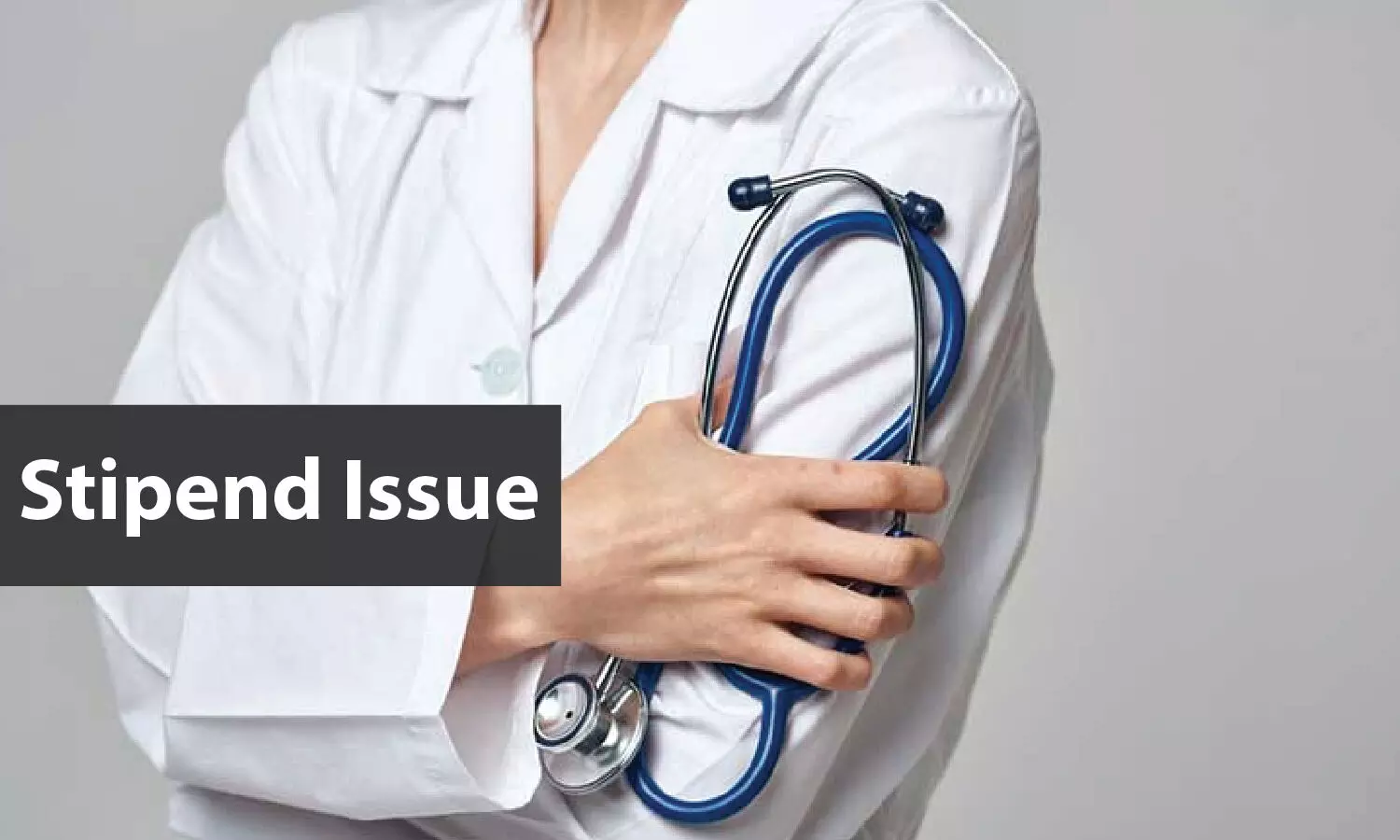
New Delhi: Doctors are hopeful about the recent move by the National Medical Commission (NMC), asking medical colleges across the country to submit the details of stipends paid to the MBBS interns and resident doctors. Hailing the move, the members of the medical fraternity have expressed their hope that this move will bring transparency as the medical colleges will now have to reveal the status of the stipend paid to the doctors.
Medical Dialogues had been reporting about the complaints from MBBS interns and resident doctors alleging that they were not receiving stipend or receiving a meagre amount despite working in the hospitals round the clock. These complaints mainly come from medical students belonging to the private medical colleges.
Recently, the National Medical Commission (NMC) asked the medical colleges to submit the details of the stipend paid to their UG Interns, Post-Graduate Residents, and Senior Residents or PGs in Super Specialty for the financial year 2023-24 by 23rd April 2024.
The medical colleges will have to submit the details of their name and address, the amount of stipend paid by the State Government, and the month-wise details of the stipend paid to the MBBS interns, 1st/2nd/3rd-year Post-Graduate Residents, and 1st/2nd/3rd-year Senior Residents or PGs in Super Specialty for the academic year 2023-2024.
“Hon’ble Supreme Court of India in the WP (Civil) No. 730/2022 & other cases vide their orders dt. 16.09.2023 and 01.04.2024 has directed NMC to submit the details of stipends paid to the Medical interns and residents and accordingly, all the Health Institutions / Medical colleges are hereby directed to submit to NMC the details of stipend paid to their UG Interns, Post-Graduate Residents and Senior Residents or PGs in Super Specialty for the financial year 2023-24 as per Annexure 1 on E-mail ID:- stipend23- 24@nmc.org.in by 23.04.2024 positively,” NMC mentioned in the notice dated 16.04.2024.
NMC has provided a similar annexure for the details of the stipend paid to medical students for the academic year 2024-2025. However, in this regard, NMC directed the colleges concerned to update these details on the website of the institute every month (by 5th of every month). The colleges have been asked to submit the complete statement to NMC at the end of each financial year.
The NMC directions come after the Supreme Court order in this matter. The Apex Court was considering the issue of non-payment of stipends to the MBBS interns across the country and directed NMC to submit the details of the stipend paid to MBBS interns in all the medical colleges across all the States within four weeks.
Reaction from the Medical Fraternity:
Addressing the NMC decision, the Federation of All India Medical Association (FAIMA) lauded the move and thanked the Chairman and Secretary of the Commission for taking this step. In an X (formerly Twitter) post, FAIMA opined it to be a “Great decision to maintain the transparency.”
The NMC decision was also praised by the President of the United Doctors Front Association (UDFA), Dr. Lakshya Mittal who opined in an X post that NMC has “taken steps to ensure transparent stipend disbursal.”
Speaking to Medical Dialogues regarding the NMC direction to the medical colleges, Dr. Aviral Mathur, the president of FORDA said, “We want NMC to act at the grassroot level, talking and interacting with the residents and interns regarding their actual salaries. Many residents have come forward after the media coverage and the modus operandi across many colleges falls within those 4-5 examples.”
“So even though NMC has launched an initiative and we commend that, merely the college’s undertaking should not be taken on face value. They can still submit erroneous/ fake details and get away with it. Leading to very little trickle down effect of this exercise,” he further added.
The Federation of Resident Doctors Association (FORDA) had earlier raised the issue of ‘stipend scam’. Expressing its hope that the new NMC move will offer a solution, the association mentioned on X, “When we first raised the issue of ‘fake’ stipends to some residents across the country, we were surprised by the number of #doctors who came forward and were a victim of this atrocity. Finally @NMC_IND intervenes and we are grateful to them & @MoHFW_INDIA for this constructive intervention.”
FORDA also expressed its hope that this move will ultimately offer some justice to the Foreign Medical Graduates (FMG) who are doing internship as well. “Hope it sets parity. And hope it lends some justice to #FMG candidates too,” the post by FORDA stated.
Also Read: Supreme Court relief: FMGs to now get stipend during internship as Indian MBBS interns
Earlier, the Supreme Court while considering the issue of non-payment of stipend to the FMGs during the compulsory internship noted that the FMGs could not be treated differently and should be paid stipends during their internship like their counterparts who have done MBBS from the Indian medical colleges. Such observations were made by the top court bench comprising Justices Sudhanshu Dhulia and Prasanna Bhalachandra after taking note of the submissions of lawyer Tanvi Dubey, appearing for a group of doctors, that foreign medical graduates in certain medical colleges were not being paid stipends during their internships.
Addressing the issue and the recent move by NMC seeking the stipend details from the colleges, the FMG Wing of the All India Medical Students Association (AIMSA) wrote on X, “After the statement & direction from Hon.Supreme Court, all Medical Colleges & Institutions are asked to submit details of stipend paid to ‘UG Interns,’ ‘PG Residents’ & ‘Senior Residents of Superspeciality Branch’ by @NMC_IND. We hope FMGs will also get equal stipend state wise.”
Meanwhile, addressing the matter, the President-Elect of Delhi Medical Association, Dr. Ashwini Dalmiya also opined that all the FMGs should get an equal stipend. “All the FMGs should get equal stipend ( Arrears with interest to those who didn’t get last year ). All state Councils & NMC to ensure,” he wrote on X.
Similar opinions were expressed by Jammu and Kashmir Medical Student’s Association as well. The association wrote, “All Foreign Medical Graduates (FMGs) should receive an equal stipend, including arrears with interest for those who didn’t receive it last year. All state councils and the National Medical Commission (NMC) to ensure this.”
Stipend issue:
The issue of non-payment of stipend does not only haunt the MBBS interns as the PG residents belonging to private medical colleges also complain of ongoing stipend scam. Despite the guidelines issued by the National Medical Commission (NMC) asking medical colleges to pay stipends to postgraduate medical students from private medical colleges, the complaints regarding non-payment of stipends remain unsolved.
Recently around 100 PG students at a private medical college in Sullia, Karnataka complained of non-payment of their monthly stipend by the college authorities. Even though the guidelines state that the PG doctors are entitled to receive Rs 45,000, Rs 50,000, and Rs 55,000 for their first, second, and third years, respectively. However, students revealed that they are only receiving Rs 10,000, Rs 12,500, and Rs 15,000 for the corresponding years.
Such stipend issues were earlier highlighted by the Right to Information (RTI) activist Sharanabasappa Ambesinghe as well who had previously demanded a police investigation of a similar alleged scam at Mahadevappa Rampure Medical College.
Medical Dialogues had last year reported about the glaring disparities in the amount of stipend paid to the Undergraduate and Postgraduate medical students across the country. As per the data regarding the students admitted through the National Eligibility-cum-Entrance Test Postgraduate (NEET-PG) examination 2022, which is available on the official website of the Commission, there were glaring disparities in the stipend paid to the Junior Resident doctors across the institutes in a state and also across the country.
The data revealed that the minimum amount of stipend (Rs 20,000 or less than Rs 20,000 per month) is paid to the resident doctors pursuing their postgraduate medical education in medical colleges located in States like Karnataka, Punjab, Rajasthan, and Uttar Pradesh.
Meanwhile recently releasing the final Post-Graduate Medical Education Regulations, 2023 (PGMER 2023), which were published in the official Gazette on 29.12.2023, the National Medical Commission (NMC) introduced uniformity in the amount of stipend paid to the PG medicos in a particular State/UT.
The Commission specified that the PG medicos who are pursuing degree, diploma or super-speciality courses should be paid a stipend at par with the stipend being paid to the PG students of Government institutes, in that particular State/UT.
Also Read: Uniform Stipend for all PG Medicos in a particular State, UT: NMC
Powered by WPeMatico
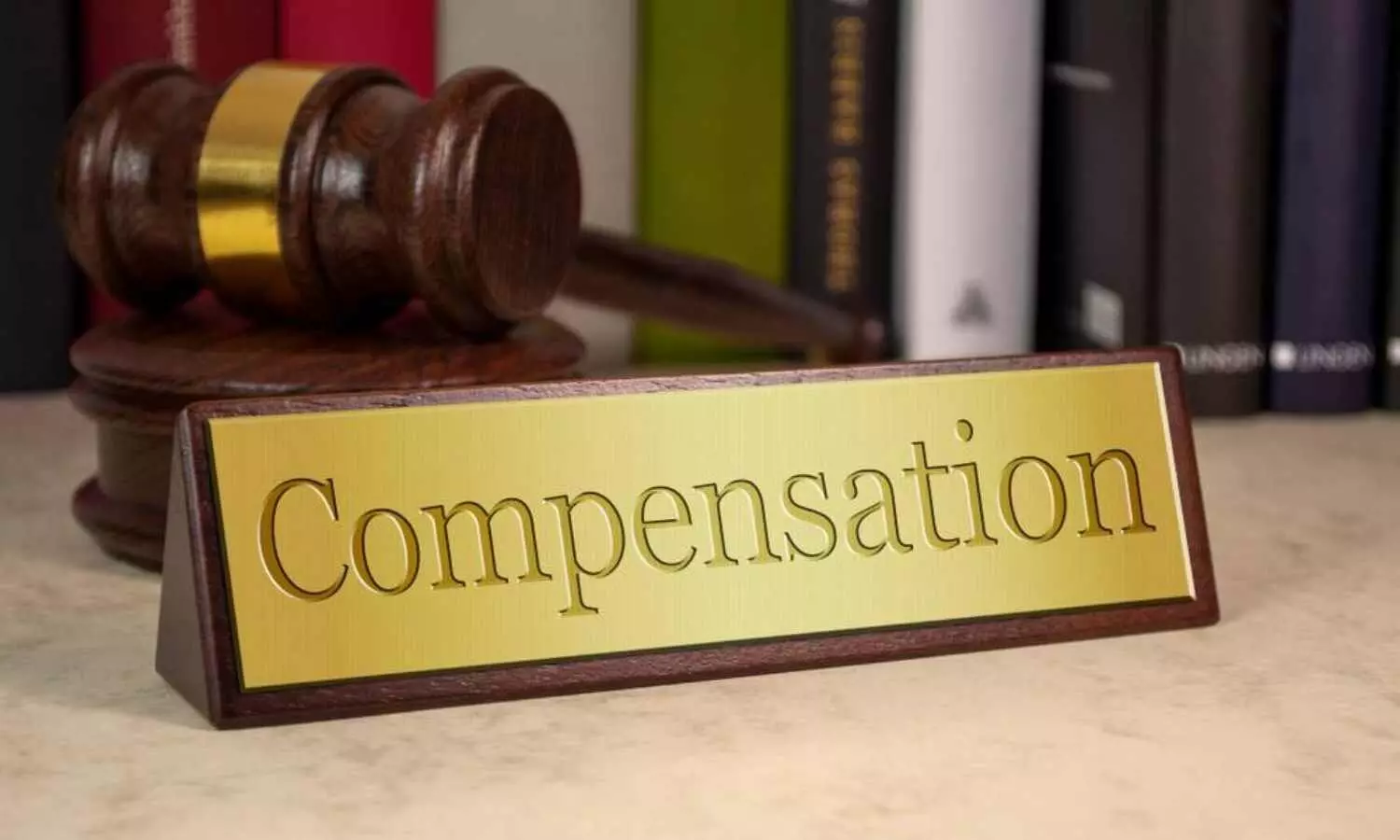
Thiruvananthapuram: The State Consumer Disputes Redressal Commission, Kerala recently held a Marikkunnu-based hospital, an ENT surgeon and an Anaesthesiologist associated with the hospital liable for lapse on their part in monitoring a patient, who underwent a Septoplasty procedure.
Due to complications, the patient became cyanosed and ultimately lost consciousness. After being treated for several months in a vegetative state, he expired in 2003. “Therefore, we have no hesitation in concluding that the vegetative condition of the 1 st complainant was caused as a direct result of the monitoring lapse on the part of the opposite parties after the surgical procedure was completed,” the State Consumer Court noted and directed the hospital and doctors to pay Rs 30 lakh to the family of the deceased as compensation towards the loss, mental agony and hardships suffered and another Rs 25,000 as costs of the litigation within one month.
“All the amounts shall be paid by the opposite parties 1 to 3 with interest thereon @ 8% per annum from 08.02.2002, the date of filing of this complaint till the date of payment,” the Commission ordered.
The history of the case goes back to 2001 when the patient consulted the treating doctor, an ENT surgeon, for a minor deformity of his nose. After examining the patient, the doctor opined that the deformity could be easily corrected by a minor surgery for which, he advised the complainant to get admitted to the treating hospital at Marikkunnu.
It was alleged that the ENT surgeon and the Anaesthesiologist had informed the patient that the concerned procedure called Septoplasty was usually done under general anaesthesia. Accordingly, the patient was admitted and after the pre-operative check-up, the operation was conducted on 04.04.2001.
Although initially the doctor had assured that there was nothing wrong with the patient, after some time, the family of the patient was informed that the patient had not recovered from the surgery and was being shifted to the Intensive Care Unit (ICU). The doctors had allegedly ensured that the patient was alright and it was only a minor anesthetic complication.
However, the patient’s condition soon turned serious and he was put on ventilator support. He remained in the hospital till 16.04.2001 but his condition allegedly worsened. It was submitted that despite repeated requests to shift the patient to hospitals with better facilities, the treating doctors and hospital declined to issue a discharge summary or the details of the treatment, or a copy of the case sheet without which it was not possible to take the patient to any other hospital for better management or treatment.
Finally, after much persuasion, the patient was shifted to Kasturba Hospital, Manipal in the Ambulance of the National Hospital, Kozhikode accompanied by the treating ENT surgeon and another doctor.
Accordingly, the patient was treated as an inpatient in the Department of Neurology from 17.04.2001 till 12.05.2001. He remained deeply in comatose condition and there was no improvement. Finally, the doctors of the Kasturba Hospital decided that nothing more could be done and treatment continued from the local hospital.
The final diagnosis was hypoxic, hypoxemic, encephalopathy and persistent vegetative state. The patient was discharged, admitted to another hospital and was treated there for three months. He was discharged thereafter because his neurological status continued to remain status-quo without any improvement. It was advised that his treatment could be continued with the assistance of two trained nurses at home and periodic check up by doctors. Accordingly, he remained at home. He was given food through a tube and a catheter was inserted for urination. Since the filing of the complaint, he had not shown any improvement.
The wife and children of the patient filed the consumer complaint and alleged that all their loss, injury and hardships were consequences of the negligence, carelessness, deficiency in service and unfair trade practice on the part of the treating doctors and hospital. Had they bestowed reasonable care, caution and attention while treating the complainant during the surgery and thereafter, all the complications that ensued could have been avoided, they argued.
Further, the complainants contended that the surgery conducted by the ENT surgeon was an elective one and was akin to cosmetic surgery. Therefore, if there was any doubt regarding the complete fitness of the complainant to undergo the same under general anaesthesia, the surgery could have been postponed or avoided.
The complainants further alleged that initially the hospital and doctors failed to provide the discharge summary and only after being threatened with legal action, they provided the records. They also claimed that the case sheet had been tampered with and manipulated.
It was alleged by the complainants that improper administering of anaesthesia and conduct of surgery could be attributed to the cardiorespiratory arrest caused to the patient. Filing the consumer complaint, they claimed Rs 50 lakh as compensation, apart from the costs of the proceedings.
On the other hand, the hospital and doctors submitted that the surgery was conducted observing all established precautions and with utmost care and caution. The patient was extubated and was fully awake. He showed stable vital signs with full consciousness. They claimed that the patient had fully recovered from anaesthesia and was talking with all protective reflexes intact.
Therefore, the patient was shifted to the recovery room. In the recovery room, the patient developed cardiorespiratory arrest which was detected immediately and resuscitated. The patient was put on ventilator support and shifted to the Intensive Care Unit. Consequently, the patient developed seizures and was treated conservatively with anti-oedema measures, antiepileptics, antibiotics and all other possible supportive measures, in consultation with the Neurologist. Seizures were controlled and the patient showed marginal improvement. Later on, the patient was shifted to the KMC, Manipal, as requested by the relatives of the patient, for further management.
They also argued that Septoplasty under general anaesthesia is not a minor surgery. Denying all the allegations of negligence, they submitted that what had happened was an established known complication of any procedure under general anesthesia and the situation was tackled sincerely and wholeheartedly to the best of their abilities. They also denied the allegations of manipulation or tampering with the records.
While considering the matter, the Consumer Court noted that after the death of the patient on 31.08.2003, a Medical Board was constituted on the basis of the Police complaint filed by the complainants. The Medical Board evaluated the medical treatment that was provided by the hospital and concluded that there was no negligence on the part of the hospital and doctors. Based on the said report, the Police referred the case reporting that there was no negligent act warranting criminal action against the hospital and doctors. Therefore it was contended that the complaint was only to be dismissed accepting the said opinion of the Medical Board.
The Commission noted that as per the certificate issued by the Medical Board, it could not identify any professional negligence on the part of the doctors who treated the patient.
After considering an expert opinion, the Commission observed that the events that took place during the period from 10.30 am to 11 am on 04.04.2001 caused the deterioration of the condition of the patient.
The Consumer Court considered the evidence by the expert doctors by the treating hospital and doctors and noted that “It is clear from the evidence of DW2 and DW3 that there was no recording of the vital parameters of the patient during the crucial period. It is claimed that there was close monitoring of the condition of the patient. But, there is no evidence to support the said contention. Going by the notings in the case sheet, what emerges is that, no monitoring of the patient was done from 10.30 am to 10.55 am. There is no recording of monitoring in Ext. B1(a) regarding the vital parameters of the patient during that time.”
“In the absence of any such evidence, the only conclusion possible is that there was no monitoring of the condition of the patient during the crucial period that changed his entire life. Though it is seen recorded at page 31of Ext. B1(a) that the patient was conscious till 10.55 am that can even be a deceptive impression and cannot support the conclusion that the vitals of the patient were normal. It is for the said reason that five minutes thereafter the patient had become cyanosed,” the Commission further observed.
It also considered the evidence produced by an expert on behalf of the complainants and noted,
“It is also a fact that cardiac monitor was not used immediately after the surgery during the post surgical period. It was connected only at 11.08 am (page 31 of Ext. A17 case sheet) after the complication had occurred. According to PW3 a normal patient to become cyanosed would require definitely more than 3-4 minutes. It is a gradual process which could be easily identified, if there is constant monitoring. PW3 has further contended that complication of irreversible brain damage is not a surgical issue, but a possible delay in identifying the complication. It is a monitoring issue.”
Noting that the opinions formed by the complainant’s expert after examining the case sheet had not been seriously challenged or disproved by the hospital and doctors in the case, the Commission opined that the patient’s condition worsened due to the monitoring lapse.
“Therefore, we have no hesitation in concluding that the vegetative condition of the 1 st complainant was caused as a direct result of the monitoring lapse on the part of the opposite parties after the surgical procedure was completed. The omission on their part to follow the standard medical protocol in this case is therefore proved beyond any doubt. In view of the above, we are satisfied that the complainants are entitled to succeed in their claim for compensation against the opposite parties,” the consumer court opined.
Noting that the loss suffered by the complainants could not be compensated in terms of money, and also taking into account that the deceased patient was young, healthy and well-employed, the Commission ordered the hospital and doctors to pay Rs 30 lakh as compensation to the family of the deceased.
“He lost a career that would have been fruitful and profitable. Therefore, we consider that an amount of Rs. 30,00,000/- shall be a reasonable compensation for the loss of the 1 st complainant in this case. The 1 st opposite party (ENT surgeon) who conducted the surgery, the 2 nd opposite party, the anesthetist as well as the 3 rd opposite party hospital are equally responsible for the death of the 1 st complainant. As the surgeon, the 1 st opposite party ought to have taken care to avert the complication created by the lack of monitoring after the surgery. The 2 nd opposite party, Anesthetist, who was responsible for weaning off the patient from anesthesia failed to anticipate the cardio respiratory arrest that followed the surgery. In view of their contention that it was a known complication associated with any surgery under general anesthesia it was necessary for them to have been more alert and to have taken precautionary measures to handle such eventuality, which they sadly did not do. For the above reasons, all the opposite parties shall be liable to compensate the complainants,” it ordered.
To view the order, click on the link below:
https://medicaldialogues.in/pdf_upload/kerala-rs-30-lakh-compensation-236564.pdf
Powered by WPeMatico
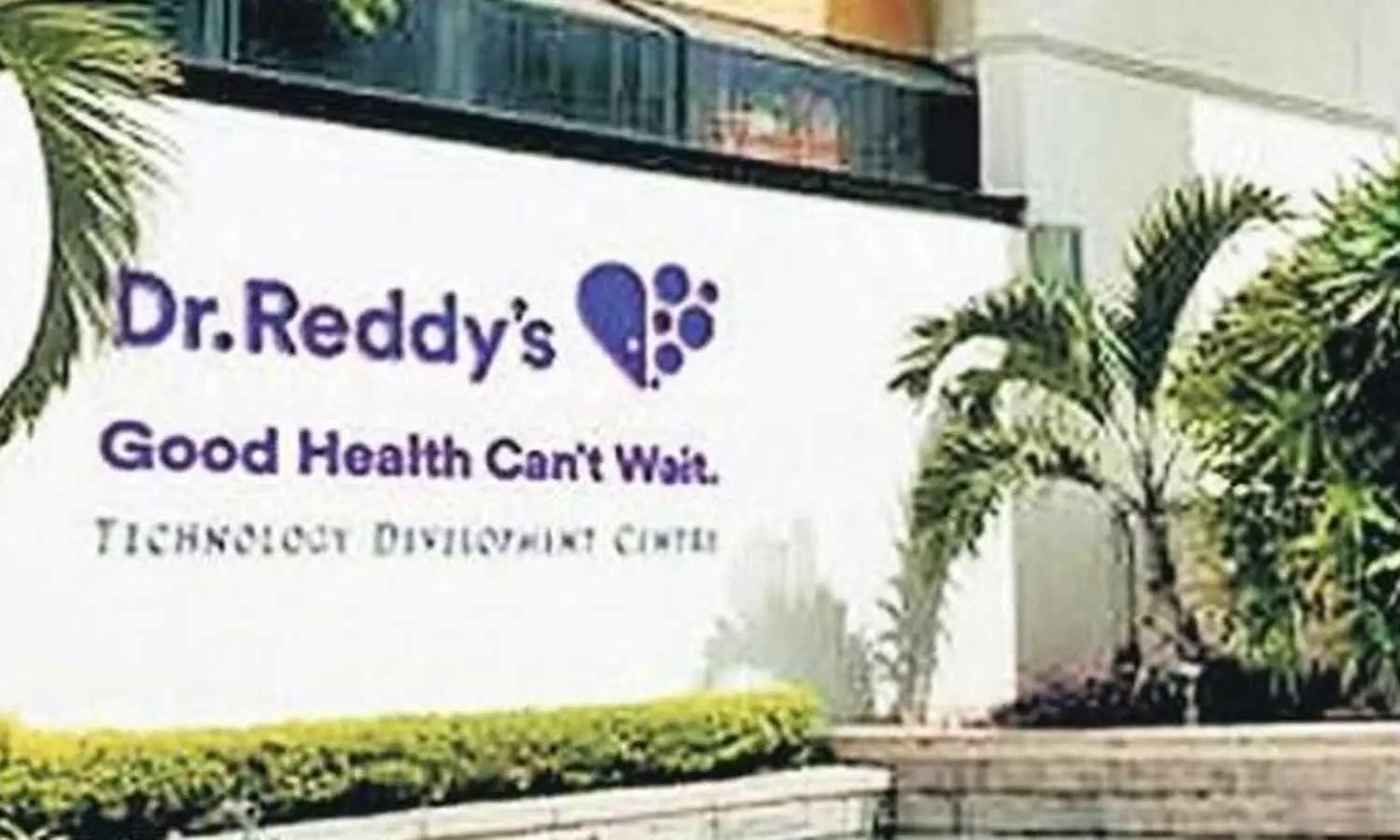
New Delhi: Noting an unmet medical need for recurrent locally advanced/metastatic nasopharyngeal carcinoma (RM-NPC) in India, the Subject Expert Committee (SEC) functional under the Central Drug Standard Control Organisation (CDSCO) has granted approval to the drug major Dr Reddy’s Laboratories to import and market Toripalimab 240mg solution for infusion with a waiver of local Phase III clinical trial with the condition to conduct Phase IV clinical trial in India.
This came after Dr. Reddy’s Laboratories presented the proposal for a grant of permission to import and market Toripalimab 240mg solution for infusion for the following indications:
1. In combination with cisplatin and gemcitabine, for first-line treatment of adults with metastatic or with recurrent locally advanced nasopharyngeal carcinoma (NPC).
2. As a single agent for the treatment of adults with recurrent unresectable or metastatic NPC with disease progression on or after platinum-containing chemotherapy with local Phase III clinical trial waiver.
The committee noted that the proposed drug Toripalimab was granted an orphan drug designation for the treatment of nasopharyngeal cancer by the United States Food and Drug Administration (US FDA) and European Medicines Agency (EMA) and approved in China and USA for the proposed indications based on Phase II and Phase III trials conducted.
The expert panel noted that there is an unmet medical need for recurrent locally advanced/metastatic nasopharyngeal carcinoma (RM-NPC) in India.
Toripalimab is in a class of medications called monoclonal antibodies. It works by helping your immune system to slow or stop the growth of cancer cells. Toripalimab is a type of immunotherapy called an immune checkpoint inhibitor. It targets a protein called PD-1 on certain immune cells, allowing them to better attack and kill cancer cells.
At the recent SEC meeting for Oncology on 3rd and 4th April 2024, the expert panel reviewed the proposal for grant of permission to import and market Toripalimab 240mg solution for infusion presented by drug major Dr Reddy’s Laboratories.
After detailed deliberation, the committee recommended a grant of permission to import and market Toripalimab 240mg solution for infusion with a waiver of local Phase III clinical trial with the condition of conducting Phase IV clinical trial in India.
Accordingly, the committee suggested that the Phase IV clinical trial protocol should be submitted by the firm within 3 months from the grant of marketing authorization.
Powered by WPeMatico
